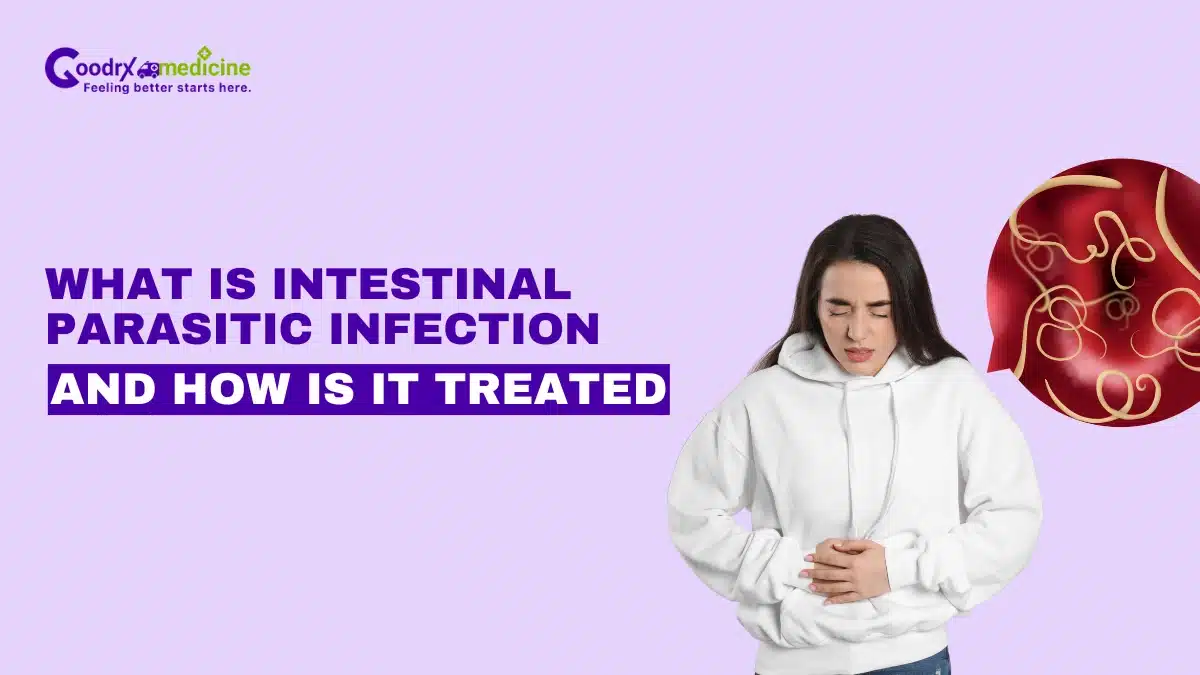Parasitic intestinal infections are more common than many people realize. These infections occur when parasites, tiny organisms that live in or on a host, enter the human digestive tract and begin to multiply.
In many cases, these parasites can cause symptoms ranging from mild discomfort to severe illness. Knowing about the causes, recognizing the symptoms, and seeking timely treatment can help manage and prevent these infections effectively.
In this article, we will discuss everything you need to know about intestinal parasitic infections, what they are, how they spread, the different types, and how to treat and prevent them.
What is a parasitic intestinal infection?
A parasitic infection in the intestine refers to an illness caused by parasites that live in the intestines. These parasites can be protozoa (single-celled organisms) or Helminths (worms). They feed on nutrients in the host’s digestive tract and can cause various gastrointestinal issues.
While some parasites live in the human body without causing noticeable harm, others lead to persistent symptoms and health issues if not treated.
Save up to 90% on your medicine bills
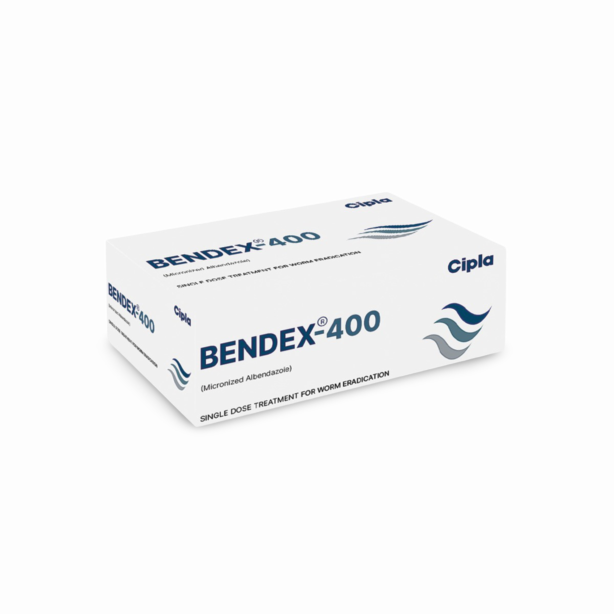
Bendex 400 Tablet
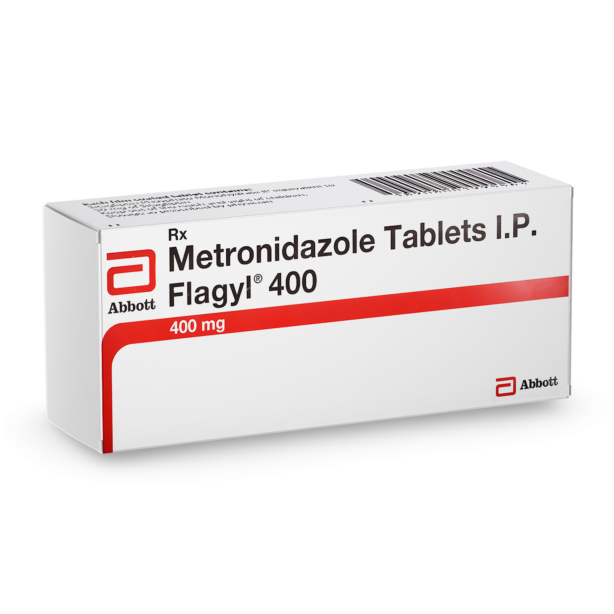
Flagyl 400 mg
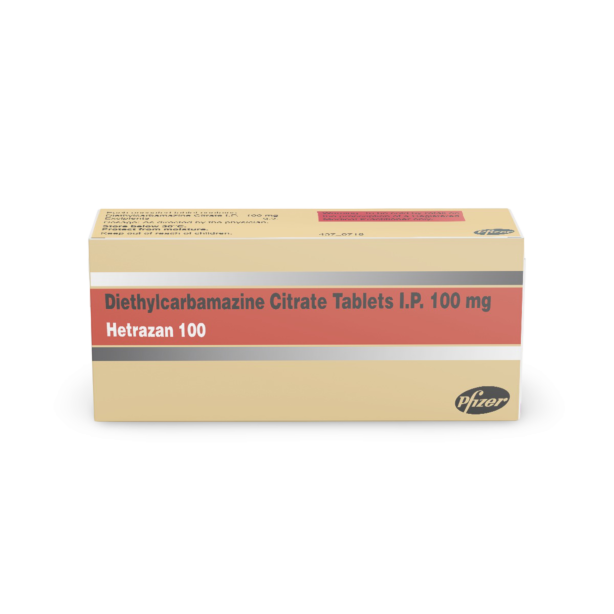
Hetrazan 100 Tablet
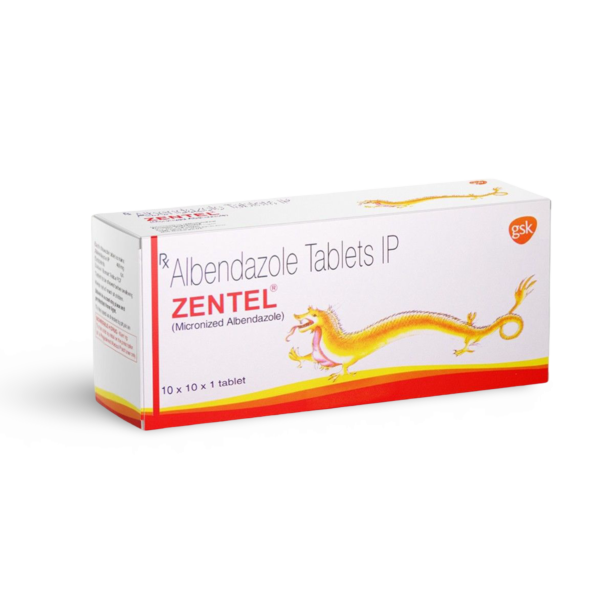
Zentel 400 mg
Common intestinal parasites
There are a number of parasites that can infect the human intestines. The most common ones include:
Giardia lamblia: Giardia is a protozoan parasite responsible for a condition called Giardiasis. It spreads through contaminated water and food and often causes watery diarrhea and stomach cramps.
Entamoeba histolytica: This parasite causes amoebiasis, particularly in areas with poor sanitation. It can lead to dysentery, which involves severe diarrhea with blood and mucus.
Cryptosporidium: Another protozoan parasite, Cryptosporidium, can infect both humans and animals. It spreads through drinking or swimming in contaminated water and causes symptoms such as nausea, diarrhea, and stomach pain.
Ascaris lumbricoides (Roundworm): This is a large intestinal worm that can grow up to 35 cm in length. It spreads through contact with contaminated soil or food and may cause abdominal discomfort and malnutrition.
Hookworms: These parasites enter the body through the skin, typically when walking barefoot on contaminated soil. They attach to the lining of the intestine and feed on blood, often causing Anemia and fatigue.
Tapeworms: Tapeworm infections are usually caused by consuming undercooked meat from infected animals. They can grow very long inside the intestine and may lead to nutritional deficiencies and abdominal pain.
How do parasitic infections spread?
Parasitic intestinal infections are most often spread through:
- Contaminated food or water
- Poor sanitation and hygiene
- Close contact with infected individuals
- Exposure to contaminated soil or surfaces
- Eating raw or undercooked meat or seafood
Children, people with weak immune systems, and people living in or traveling to areas with inadequate sanitation are at higher risk of contracting these infections.
Intestinal parasitic infection symptoms
The symptoms of parasitic intestinal infections can be different based on the type of parasite and the severity of the infection. Some people may remain asymptomatic, while others experience more noticeable discomfort. Common symptoms include:
- Diarrhea (sometimes bloody or watery)
- Abdominal pain or cramping
- Bloating and gas
- Nausea and vomiting
- Fatigue and weakness
- Unexplained weight loss
- Itching around the anus (especially in pinworm infections)
- Anemia (in cases of blood-feeding parasites like hookworms)
In children, these infections can affect growth and cognitive development if left untreated for a long time.
Diagnosing a Parasitic infection
If you experience persistent digestive symptoms or suspect a parasitic infection, it’s important to consult a doctor. Diagnosis includes:
- Stool tests: A laboratory will examine stool samples to identify parasite eggs or organisms.
- Blood tests: These can detect immune responses or certain parasites not easily seen in stool.
- Imaging: In rare cases, imaging techniques like ultrasound or endoscopy are used to locate worms in the intestines.
Multiple stool samples collected on different days are sometimes needed to confirm a diagnosis, as some parasites are not shed in every bowel movement.
Intestinal parasitic infection treatment
Once a diagnosis is confirmed, parasitic infection treatment depends on the specific type of parasite. The most common treatment options include:
Antiparasitic medications: These medicines are prescribed based on the identified parasite. Some commonly used medications include:
- Metronidazole or Tinidazole for giardiasis and amoebiasis.
- Albendazole or Mebendazole for worm infections like roundworm or hookworm.
- Nitazoxanide (like Nizonide 500) for cryptosporidiosis.
Supportive care: If the infection causes dehydration due to diarrhea or vomiting, rehydration with oral rehydration salts (ORS) or IV fluids may be necessary.
Nutritional support: Long-standing parasitic infections can lead to malnutrition. In such cases, dietary supplements and a nutrient-rich diet are often recommended during recovery.
Always follow your doctor’s advice and complete the full course of medicine, even if symptoms improve early.
Preventing parasitic intestinal infections
Prevention is the best protection against parasitic infections. Here are some ways to reduce the risk:
- Wash hands with soap and water before eating or cooking, after using the toilet, and after handling pets or soil.
- Keep fingernails short and clean.
- Avoid drinking water from rivers, lakes, or taps in areas with poor sanitation.
- Use bottled or boiled water for drinking, brushing teeth, and washing food.
- Cook meat and fish thoroughly.
- Wash fruits and vegetables well before eating.
- Avoid eating food from unhygienic street vendors, especially while traveling.
- In areas where hookworms are common, walking barefoot can lead to infection through the skin. Wearing shoes can help prevent this risk.
- Use proper sanitation for human and animal waste.
- Regularly clean living spaces and dispose of garbage safely.
- Teach children about handwashing and hygiene.
- Monitor pets and livestock for signs of parasitic infections, especially if they live indoors or near food sources.
When to see a doctor
Seek medical attention if you experience any of the following:
- Persistent diarrhea lasting more than a few days
- Bloody stools
- Severe stomach pain
- Dehydration (dry mouth, reduced urination, dizziness)
- Fatigue without a clear cause
- Travel history to high-risk areas followed by gastrointestinal symptoms
Conclusion
Intestinal parasitic infections may seem minor at first, but they can significantly impact health if left untreated. With symptoms ranging from little digestive discomfort to serious complications like malnutrition or Anemia, it is important to stay informed and act quickly.
Understanding how these infections spread, recognizing the warning signs, and seeking timely medical care can prevent long-term health issues.
Most importantly, practicing good hygiene, ensuring proper sanitation, and maintaining safe food and water habits can go a long way in protecting yourself and your loved ones from these common yet preventable infections.

Frequently Asked Questions
What parasite can infect both skin and intestines?
Hookworms are parasites that can infect both the skin and intestines. They enter the body through the skin, usually when walking barefoot on contaminated soil, and then travel to the intestines, where they attach to the lining and feed on blood, potentially causing Anemia and weakness.
How long can a parasite live in your intestines?
The lifespan of intestinal parasites varies. Some, like pinworms, may live for a few weeks, while others, such as tapeworms, can survive for years in the intestines if untreated. Chronic infections may persist silently, gradually causing nutritional deficiencies and other health issues over time without proper medical intervention.
Can probiotics help with parasitic infections?
Probiotics are not a cure for parasitic infections, but may support gut health during or after treatment. They help restore the natural balance of good gut bacteria, which can be affected by infection or medication. Always use them alongside, not in place of, prescribed antiparasitic treatment.
Is it safe to take antiparasitic medicine during pregnancy?
Some antiparasitic medications are considered safe during pregnancy, while others are not recommended. Treatment decisions depend on the type of parasite and the stage of pregnancy. Pregnant women should always consult a doctor before taking any medication to ensure the safety of both mother and baby.
When referencing outside resources, GoodrxMedicine always provides full citations. To learn more about the measures we use to maintain the quality of our content, please review our Content Information Policy.



